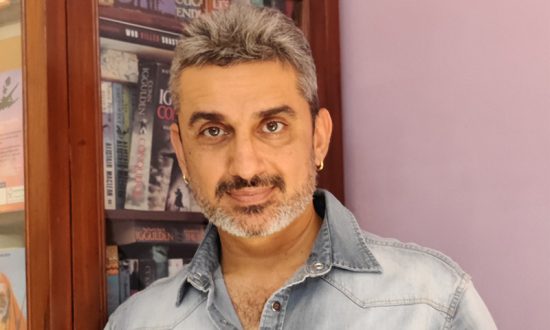Abhishek is a Mumbai-based environmentalist and author, with a committed passion to driving awareness about environmental conservation and protecting our heritage, which reflects in all his endeavours, including his writing. He strongly believes that children hold the key to shape our world and its future. And this has motivated him to create characters and weave stories for children that will help them not only become more aware about the greatest bounties of mother nature, but also imbibe a love for preserving all life forms and build pride in our heritage within them.
At the recent Tokyo Olympics, apparently all the 5000 odd medals were made entirely from recycled gold, silver and bronze. That is about 8 tonnes of precious metals, recycled from e – waste! If that isn’t mind – boggling enough, consider this: As per a recent UN report, the largest recycler of e – waste in China, a single entity, produces more cobalt every year than what the entire country mines in the same period. And this, where only 30% of the available e – waste is recycled.
Clearly, there is a huge upside that companies and countries as a whole can avail of by smart recycling of e – waste. In fact, India is the only South East Asian country to have a specific e – waste law since 2011. In August 2021, PM Shri Narendra Modi launched the ‘Waste to Wealth’ initiative too, one on the initiatives to help get to our target of net zero carbon by 2070.
What this presents is a massive opportunity for organizations to not just monetize waste but also make a difference to the environment and help fight climate change. India is the third largest contributor of e – waste, after the US and China, at over 3.5 million tonnes a year. Despite a policy in place, only a fraction over 10% of this waste actually gets collected. Pretty much all of us use and dispose of electronic gadgets, making each one of us a culprit. Worse, companies that use these gadgets en masse have an even bigger carbon footprint. Given the huge risks involved in incorrect disposal of e – waste, this is a scary scenario, at best.
For one, environmentally hazardous material used in the manufacture of electronics makes its way to landfills. This is further exacerbated when some of it makes its way to the oceans. Over the mid and long term, these are a massive health hazard for humans, besides being anathema for the environment. For another, our requirement for upgrades and replacements of the electronics we dispose is burgeoning. This puts more pressure on mining and other activities to extract cobalt, lithium, copper, iron, gold, silver, mercury etc. These are finite resources, which means we will run out of them eventually. Remember the recent shortage of microchips for cars? In addition, the act of procuring and processing these elements harms the environment. Last but not the least, freshly minted metals are way more expensive components in our phones and laptops, than recycled ones!
To mitigate this risk, the government has mandated that by 2023, 70% of all e – waste must be recycled by the producer. Effectively, this means that electronics manufacturers have to take onus that at least 70% of their disposed products are recycled. This in turn has led to the creation of Producer Responsibility Organizations (PRO). A PRO is a company that takes on the onus of collecting its client’s brand of e – waste and ensuring it is recycled. Simply put, the manufacturer of ‘X’ brand of laptops is supposed to ensure that at least 70% of all laptops of its brand that are disposed, should get collected and recycled / refurbished / disposed of safely. The manufacturer in turn outsources this entire activity to a PRO. And herein lies the key for companies to reduce their carbon footprint.
One of the bigger challenges that companies are faced with is to do with the process of e – waste disposal. Nearly 90% of this is through the unorganized ‘kabaadi’ sector in India. That in itself is not a bad thing. The problem is that this channel has no mechanism for tracking or ensuring safe recycling or disposal of the material. With the advent of the PRO, this gap can be bridged. Following a few simple steps, companies can not only reduce their carbon footprint drastically but also monetize their e – waste.
- While procuring electronics, always check if the supplier / manufacturer has a PRO or end of life disposal policy. If they don’t, us asking them about it will in itself put pressure on them to ensure they have one
- Most will have a buyback policy in place, either directly or through their PRO. Don’t buy from companies that have no such mechanism in place
- For equipment that the organization already owns and wishes to dispose of, there are several registered PROs in India that one can work with. Most of these are brand – agnostic, which means they will buy back or collect for a fee, your electronic waste that needs to be disposed, irrespective of the brand or age of the product
This simple step takes the onus of disposal from the user and puts it where it belongs – on the producer! That is not to say we have no responsibility as users. Far from it. The only way the problem of e – waste disposal can be tackled is if we all do our bit. By following the steps detailed above, users, especially at the institutional level, can do their bit for the environment. The best part is, it costs companies nothing and in most cases they’d actually get paid for getting their e – waste taken off their hands. Proper recycling of e – waste not only reduces your carbon footprint but could actually pay you for it. Truly, a hidden goldmine!


